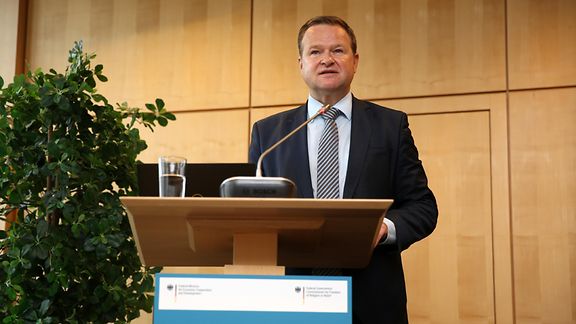
At an international conference in Berlin, experts gathered to discuss how artificial intelligence (AI) is shaping freedom of religion or belief. Organized by the German Federal Ministry for Economic Cooperation and Development (BMZ) and the Federal Government Commissioner for Freedom of Religion or Belief, Frank Schwabe, the event drew high-level delegations from 30 countries, along with representatives from religious communities, civil society, science, and business.
The conference examined the dual impact of AI on religious freedom. Schwabe highlighted both the potential benefits and risks of AI technology. He noted that AI could enhance the participation of religious believers in remote areas, allowing them to engage more fully in society. However, he also warned of significant dangers, such as the spread of hatred and disinformation, and the increased surveillance of religious minorities.
“We can only counter these negative developments by working closely with tech companies, civil society, and governments,” Schwabe stated. The conference aimed to promote international cooperation to protect religious freedoms in the digital age and ensure that human rights standards are upheld in the development and application of AI technologies.